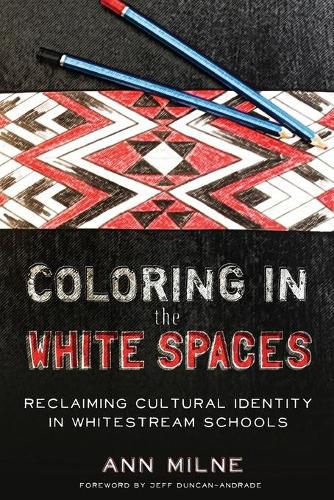Readings Newsletter
Become a Readings Member to make your shopping experience even easier.
Sign in or sign up for free!
You’re not far away from qualifying for FREE standard shipping within Australia
You’ve qualified for FREE standard shipping within Australia
The cart is loading…






This title is printed to order. This book may have been self-published. If so, we cannot guarantee the quality of the content. In the main most books will have gone through the editing process however some may not. We therefore suggest that you be aware of this before ordering this book. If in doubt check either the author or publisher’s details as we are unable to accept any returns unless they are faulty. Please contact us if you have any questions.
This book examines the struggle against racial and cultural inequity in educational systems, presenting the case study of a New Zealand school and its community’s determination to resist alienating environments. If we look at an untouched child’s coloring book, for instance, we think of the pages as blank. But they’re not actually blank - each page is uniformly white, with lines established to dictate where color is allowed to go. Children by this are taught about the place of color and the importance of staying within pre-determined boundaries and expectations, reinforcing a system where the white background is considered the norm. To challenge such whitestreaming, this book offers the example of a community that defied and rejected this environment in favor of a culturally-located, bilingual learning model of education based on secure cultural identity, stable positive relationships, and aroha (authentic caring and love). This journey is juxtaposed against pervasive deficit-driven, whitestream explanations of inequity and purported achievement gaps of indigenous Maori and Pasifika students. This story chronicles the efforts of the Kia Aroha College community on its quest to step outside education’s White spaces to create a new space for learning and to reclaim educational sovereignty - where individuals have the absolute right to be Maori, to be who they are, in school.
$9.00 standard shipping within Australia
FREE standard shipping within Australia for orders over $100.00
Express & International shipping calculated at checkout
This title is printed to order. This book may have been self-published. If so, we cannot guarantee the quality of the content. In the main most books will have gone through the editing process however some may not. We therefore suggest that you be aware of this before ordering this book. If in doubt check either the author or publisher’s details as we are unable to accept any returns unless they are faulty. Please contact us if you have any questions.
This book examines the struggle against racial and cultural inequity in educational systems, presenting the case study of a New Zealand school and its community’s determination to resist alienating environments. If we look at an untouched child’s coloring book, for instance, we think of the pages as blank. But they’re not actually blank - each page is uniformly white, with lines established to dictate where color is allowed to go. Children by this are taught about the place of color and the importance of staying within pre-determined boundaries and expectations, reinforcing a system where the white background is considered the norm. To challenge such whitestreaming, this book offers the example of a community that defied and rejected this environment in favor of a culturally-located, bilingual learning model of education based on secure cultural identity, stable positive relationships, and aroha (authentic caring and love). This journey is juxtaposed against pervasive deficit-driven, whitestream explanations of inequity and purported achievement gaps of indigenous Maori and Pasifika students. This story chronicles the efforts of the Kia Aroha College community on its quest to step outside education’s White spaces to create a new space for learning and to reclaim educational sovereignty - where individuals have the absolute right to be Maori, to be who they are, in school.